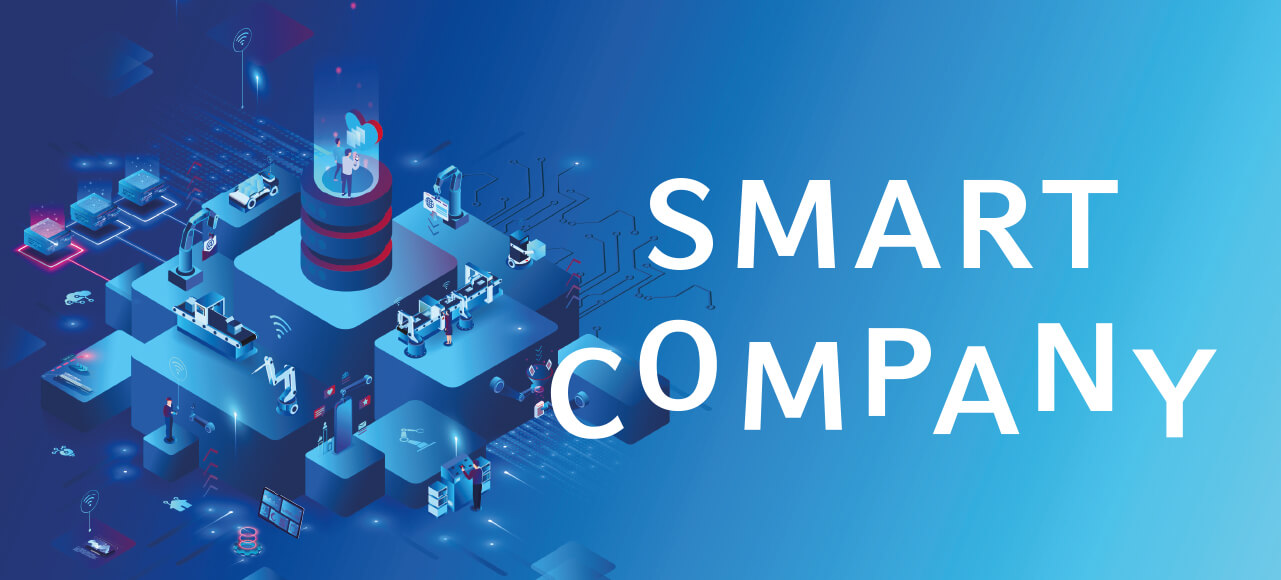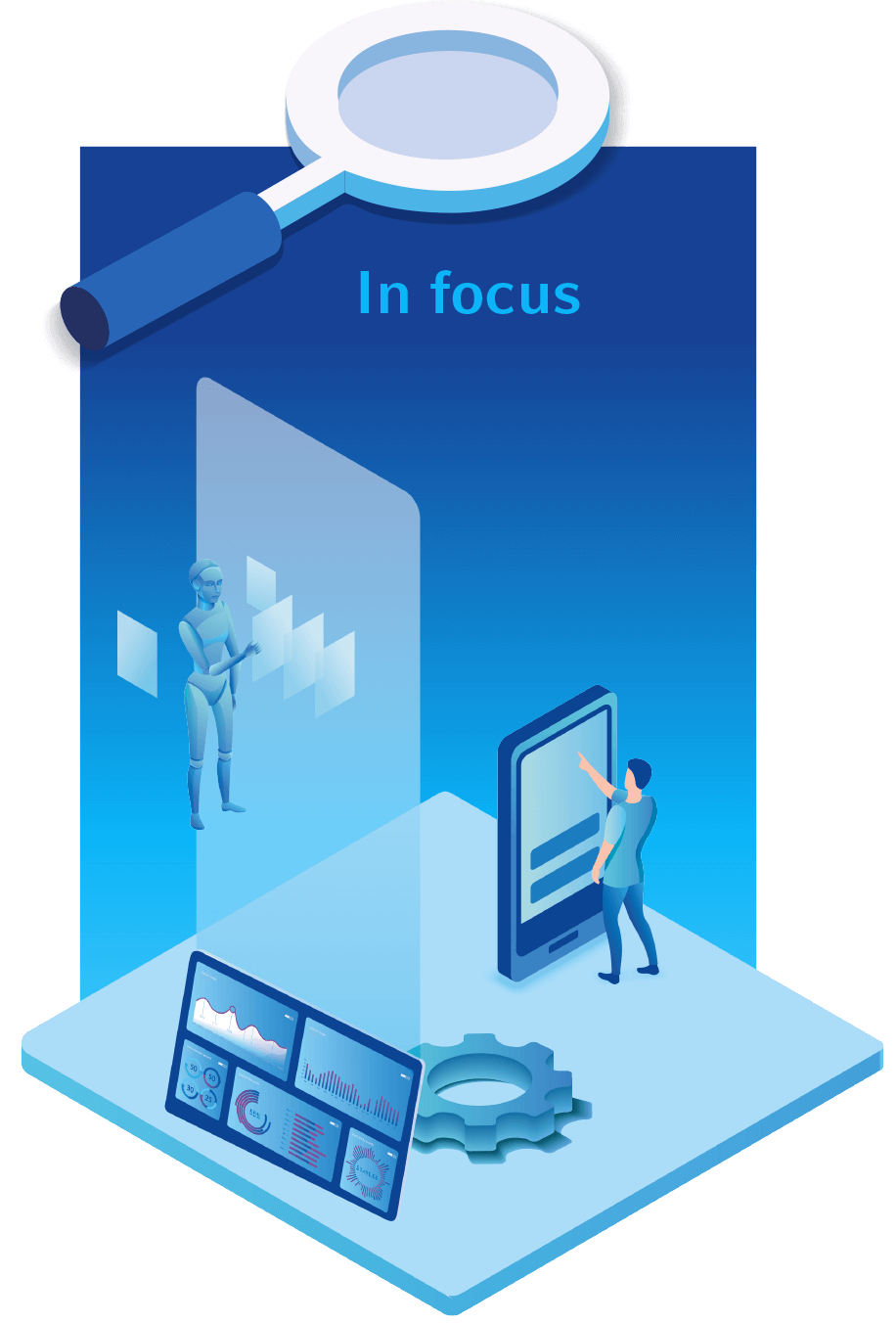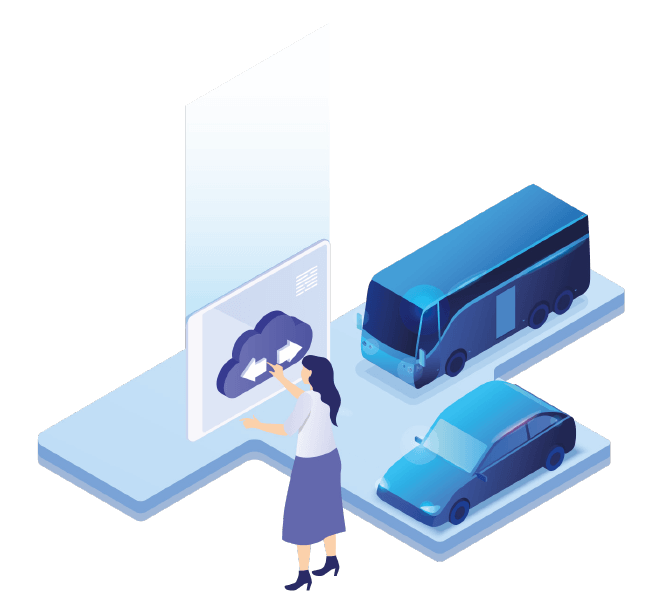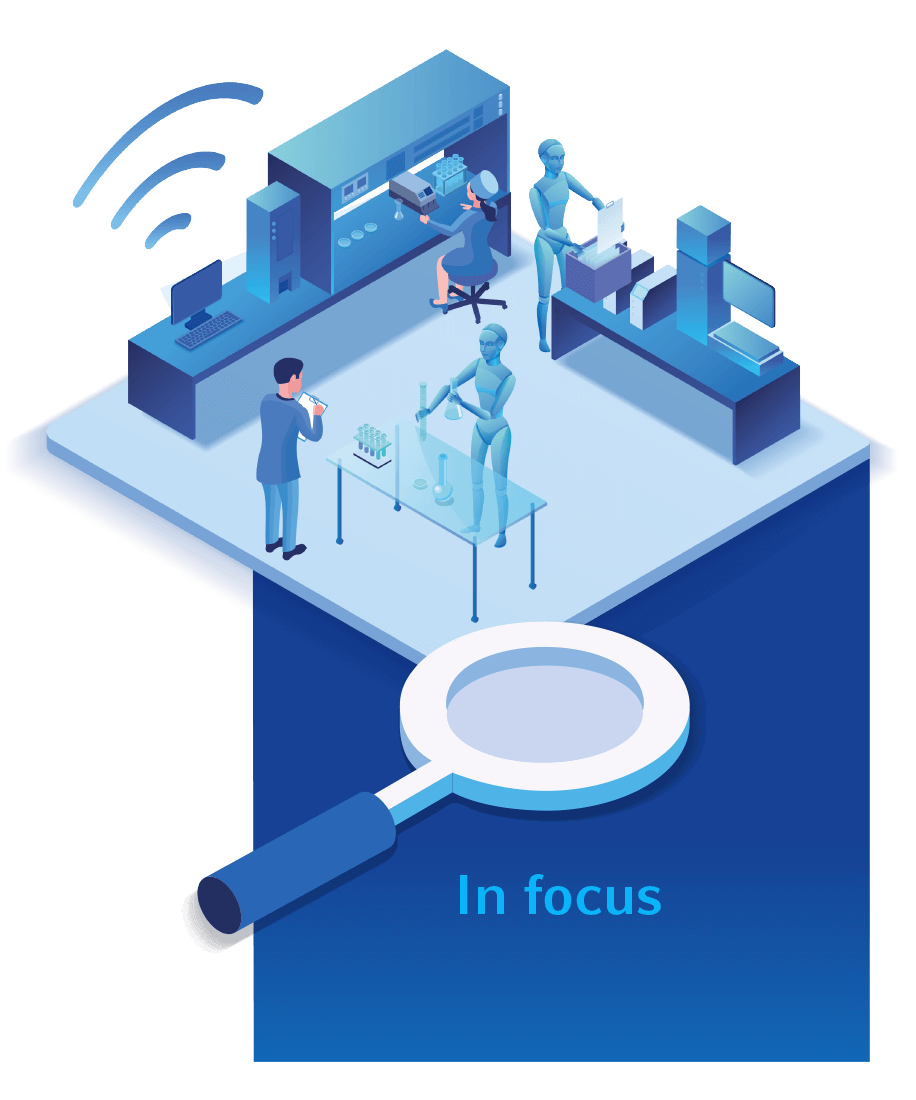
Smart Company
Digital transformation is everywhere, affecting virtually all areas of our lives. Essentially, it means stepping up our use of IT and harnessing global connectivity in order to make processes more efficient and effective on an ongoing basis. It is about how people and organizations work, interact, and adapt and how this can generate additional value. As far as ElringKlinger is concerned, the digital transformation holds one of the keys to the future. Corporate culture and digitalization go hand in hand and are closely intertwined. At the heart of this transformation are ElringKlinger’s employees, who are shaping this change.

The onward march of digitalization is not only confined to people’s homes: companies, too, are increasingly realizing the omnipresence of the digital transformation. The market and customers alike have their sights set on integrated digital solutions, and ElringKlinger sees this as an opportunity to create value by leveraging digitalization. The digital transformation is thus contributing to the company’s growth through a comprehensive and consistent data strategy. For this reason, ElringKlinger has made the conscious decision to shape digital change successfully and accelerate it proactively as part of a holistic transformation process.
With digital habits and the possibilities afforded by technology both changing rapidly, companies are adapting in order to stay competitive. ElringKlinger is embracing this change and making it part of its fabric. The digital transformation is one of the factors that will play a key part in delivering its corporate strategy and thus for its future success as a company.
The crucial element of added value that the digital transformation is bringing to the Group is the establishment of a digital process and system landscape aligned with the industry benchmark. At the start of its transformation process, the company mature it was and ask itself what level it wanted to be at in the future. This is the only way to exploit the potential and opportunities offered by the digital revolution to the full. ElringKlinger is thus forging its own path of transformation rather than copying competitors and adding these elements into its existing IT landscape. The Group is pressing on with making lasting improvements to its own digital architecture and is accelerating this process with the help of its employees.
It will only be able to achieve the digital transformation – part of its corporate strategy – and the objectives and targets derived from it if the necessary systems, processes, and personnel are given the appropriate capabilities. Since employees and their skills will be the main catalysts of this transformation, they must be empowered to tackle it when it comes and thus shape the future of ElringKlinger.

A market-leading standard
A dedicated unit for the digital transformation has been set up to coordinate the process from a central base. This organizational approach ensures that all areas of the company are involved and a link is forged between the IT and business sides. In this organizational structure, all activities across the company are planned with the objective of bringing all the staff with operational responsibility for the process together in an interdisciplinary team in order to drive digitalization forward in an integrated way.
ElringKlinger has adopted a platform-driven approach to its digitalization. This means it has set up digital business platforms to keep its process and system landscape at a leading market standard; at the same time, it is using real-time, user-centered information for smart enablement. The focus is also on empowering staff at all levels to use new digital tools and methods. ElringKlinger is working toward an architecture that will allow it to map all its requirements from day-to-day business and customer demand as digital twins in production, and Group sustainability.

ElringKlinger uses digital technologies to work more efficiently and resource-saving.
A holistic roadmap
The digital transformation is continuing apace. ElringKlinger is evolving at the same speed and is even pulling ahead with its holistic strategy. In this context, systems, processes, and data structures are being scrutinized across the company, in addition to being newly introduced and implemented accordingly. This transformation process is founded on the creation of a holistic roadmap, which is creating transparency and ensuring that everyone throughout the Group is working on the right things. The roadmap guarantees that the internal development steps are given the right priorities for investing in the digital transformation in a targeted way.
The Group-wide digitalization roadmap is making a significant value contribution to the company. The interdependencies between systems, data, and processes are classified and prioritized on the roadmap with the aim of eliminating interface problems so that work on the common target architecture can proceed in a structured fashion. Digitalization is also creating value in that tasks that can only be performed with significant manual effort at present, if at all, can be mapped more easily. As a basic principle, the digital transformation will not mean any changes to ElringKlinger’s products in a first step. However, digitalization will help the company to develop new ones faster, spot market trends more successfully, and make production processes more efficient. Structuring its data in an integrated way will enable the Group to embrace new trends in technology such as artificial intelligence.
As well as the product- and process-related changes that are on the agenda, the key player in all of this is the human being, in this case the people who work for ElringKlinger.

People as a success factor
One of ElringKlinger’s hallmarks has always been how it puts its employees front and center. Yet the world of work has undergone continual change and upheaval in the 140 years the company has been in business. The coronavirus pandemic, in particular, showed ElringKlinger´s ability to transform itself by introducing extensive flexibility measures to promote mobile working. This adaptability is a key factor in the digital transformation. Rather than shunning new approaches, therefore, the company has realized how important it is to think in new ways and keep on setting new objectives rather than resting on your laurels. And the Group is harnessing its technological focus, which is already strong, to this end. It is not just IT that is undergoing a transformation, however. Rather, the transformation is making its presence felt in other aspects of the company too, such as its development, culture, and processes. As well as the product- and process-related changes that are on the agenda, the key player in all of this is the human being, in this case the people who work for ElringKlinger.
In the digital world of work too, it is the employees – their talents, their skills, and their dedication – that make the difference. It is primarily a case of getting to grips with new situations more easily and being able to analyze and solve problems better in an increasingly complex (working) world. Companies will only remain fit for the future if they can successfully combine technical knowledge, basic digital literacy, and interdisciplinary expertise. Investments in staff training and development are thus key to success in times of ever-fiercer competition and the pressure to innovate.

Artificial Intelligence & Analytics
These lie at the heart of the digital transformation, because processes and forecasts are set to become increasingly efficient and entire workflow structures will change for good. Artificial intelligence (AI) is everywhere at the moment and is already making its presence felt in the home in particular (voice control, smart-home solutions). However, AI is gradually finding its way into the corporate world of work too. Instead of individual execution and calculation steps being programmed by human beings, an AI system learns how to adapt to changes in its surroundings itself. Essentially, it uses image, noise, and touch sensors to generate information to help it “perceive” things. Rather than developing human skills, however, what AI actually does is quickly process vast amounts of data that a human being could never manage in such a short space of time. An AI system can therefore outperform a human in many areas – although it will usually be specialized in a single core function. Ever-increasing volumes of data allow AI to be optimized on an ongoing basis.
One of the key elements is therefore not only to take your employees along with you on your digitalization journey but also to empower them to deliver digitalization themselves. Strategies for teaching new methods as well as new approaches to collaboration will gear staff up for the transformation process and equip them with methods that will take them – and thus ElringKlinger as well – to the next level. For ElringKlinger, the way ahead is clear – without investing in its personnel, perhaps the biggest transformation in the world of work since the Industrial Revolution simply cannot be achieved.
The digital transformation demonstrates more than ever how people are at the heart of ElringKlinger. Although it may be possible to introduce new systems and methods into the company, they will be doomed to fail without the employees to act as the linchpin. The objectives set as part of the digital transformation can only be achieved with highly skilled, highly motivated staff.
Digitalization requires a corporate culture that is open to change in order to successfully manage the transformation.

Digitalization and corporate culture
Together with its corporate culture, digitalization will be one of the elements contributing to the future success of the ElringKlinger Group. The two success factors both influence and are dependent on each other. The corporate culture is primarily shaped by the behavior of the people working in the company and their diverse internal and external interactions. Therefore, a successful digital transformation also requires a development of the employees’ behavior and also of the corporate culture. Successful transformation of the Group requires in particular a proactive approach to change and openness to new processes and ways of working across the organization. Especially, the fundamental ability to deal successfully with change is a future feature of corporate culture with high significance. This includes, for example, dealing openly with mistakes and accepting failure early on when new paths have to be taken. Digitalization requires a corporate culture that is open to change in order to successfully manage the transformation. Corporate culture and digital transformation must go hand in hand and work closely together if they are to be successful.
Change cannot be done with the click of a mouse. Instead, communication and collaboration are called for in order to tackle it. This is what the digital transformation means: making change and transition an integral part of the company. This is the challenge that digitalization brings as a way of supporting the corporate strategy. Instead of a one-off or short-term project, the digital transformation is an issue that will stay with the Group permanently in the future. ElringKlinger is working proactively to drive the transformation process forward and accelerate it through its own efforts in order to make a valuable contribution to the sustainable mobility of tomorrow through digitalization.

Digital Twin
Digital twins are virtual representations of products, machines, or processes that contain all the relevant data and simulation models – be this for a factory, a product such as a fuel cell, or an entire value chain. As well as enabling products to be designed, simulated, and manufactured faster, digital twins also make it possible to design them to be particularly inexpensive, powerful, robust, or environmentally friendly, depending on your requirements. Acting like a digital shadow, this virtual doppelgänger can also accompany a product through all the stages of its value chain, from production and operation through to servicing or even recycling.





